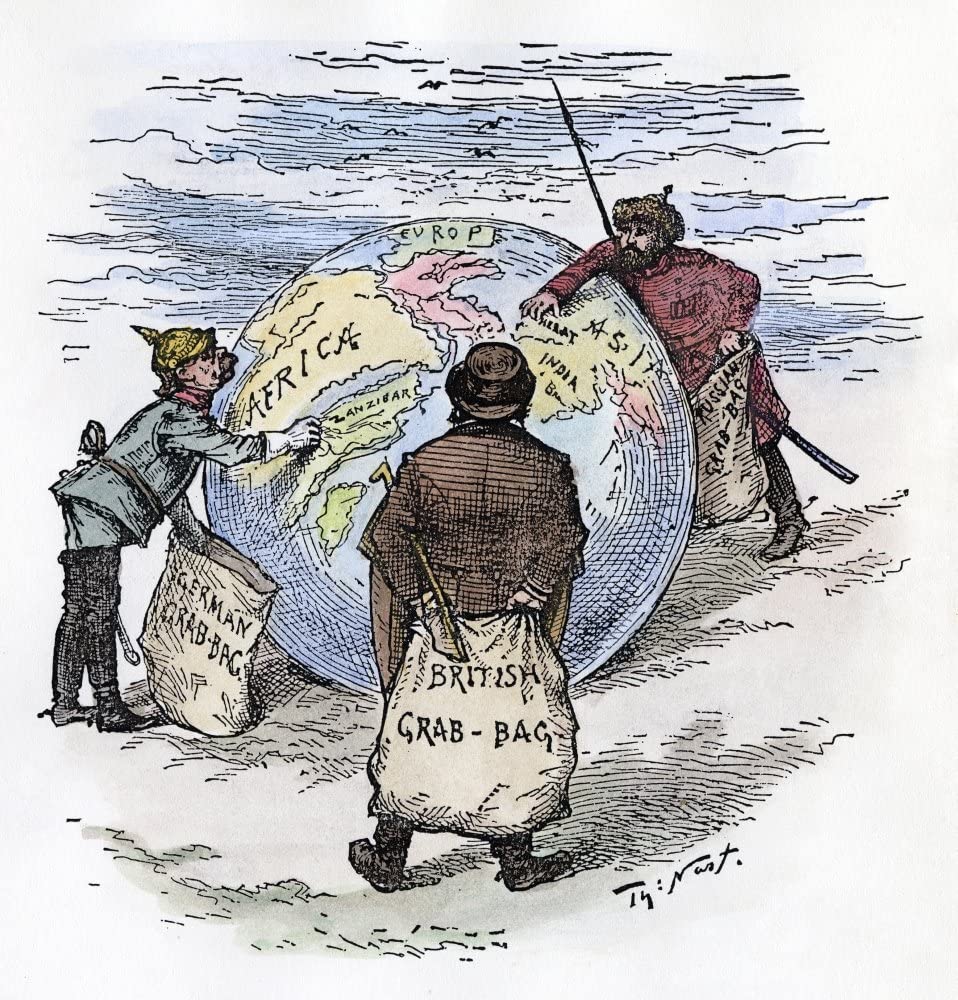
"Empire Imperialism Cartoon - The World's Plunderers," Thomas Nast, 1885
In the late 1800s, industrialization increased production and raw material demand. European empires colonized weaker countries to obtain resources. By the 1900s, Europe controlled the majority of Africa, Southeast Asia, China, and India. This imperial mentality played a role in the start of WWI and the failure of the Treaty of Versailles.
"We seem, as it were, to have conquered and peopled half the world…"
- John Robert Seeley, Historian (1883)
Europe faced imperialism within its countries. In 1908, Austria-Hungary annexed Serbian populated Bosnia; however, Bosnians resisted annexation. Radical Bosnians assassinated Austria’s heir, Franz Ferdinand, believing it would lead to Bosnian independence.
Austria-Hungary then accused Serbia of assassinating Ferdinand. Austria-Hungary was successful in provoking war after sending impossible demands to Serbia.
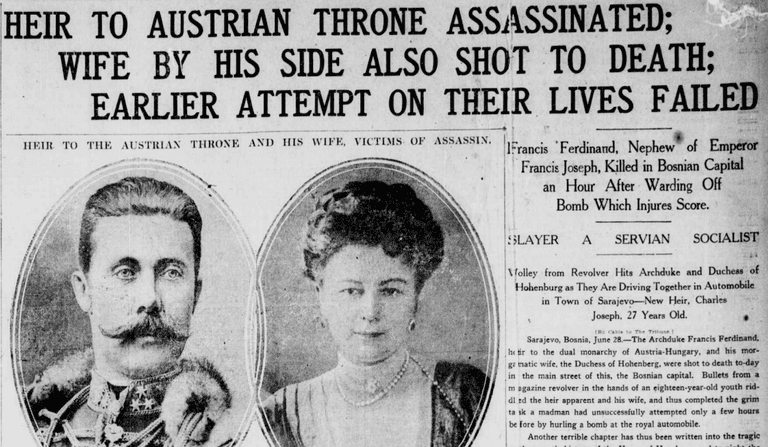
"Heir to Austrian Throne Assassinated Newspaper," New York Herald Tribune, 1914
WWI began in 1914, with the major powers:
Central Powers
Germany, Austria-Hungary, and the Ottoman Empire
Allied Powers
Britain, Italy, France, Russia, and Japan
In 1917, Germany’s aggression against American rights caused the US to enter WWI alongside the Allies.
"We entered this war because violations of right had occurred which touched us to the quick and made the life of our own people impossible unless they were corrected and the world secured once for all against their recurrence."
- Woodrow Wilson, US President (1918)
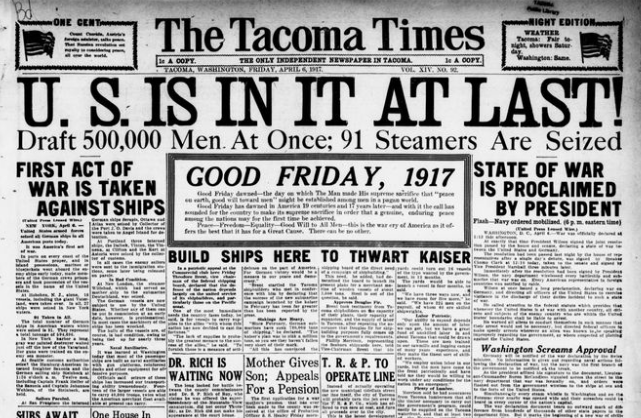
"U.S. Is in at Last," Tacoma Times, 1917
Through advanced technology, WWI created unprecedented expense and carnage.
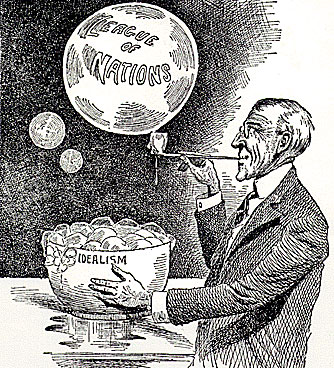
"Blowing Bubbles - Woodrow Wilson and the League of Nations," Heritage Image Partnership Ltd, 1919
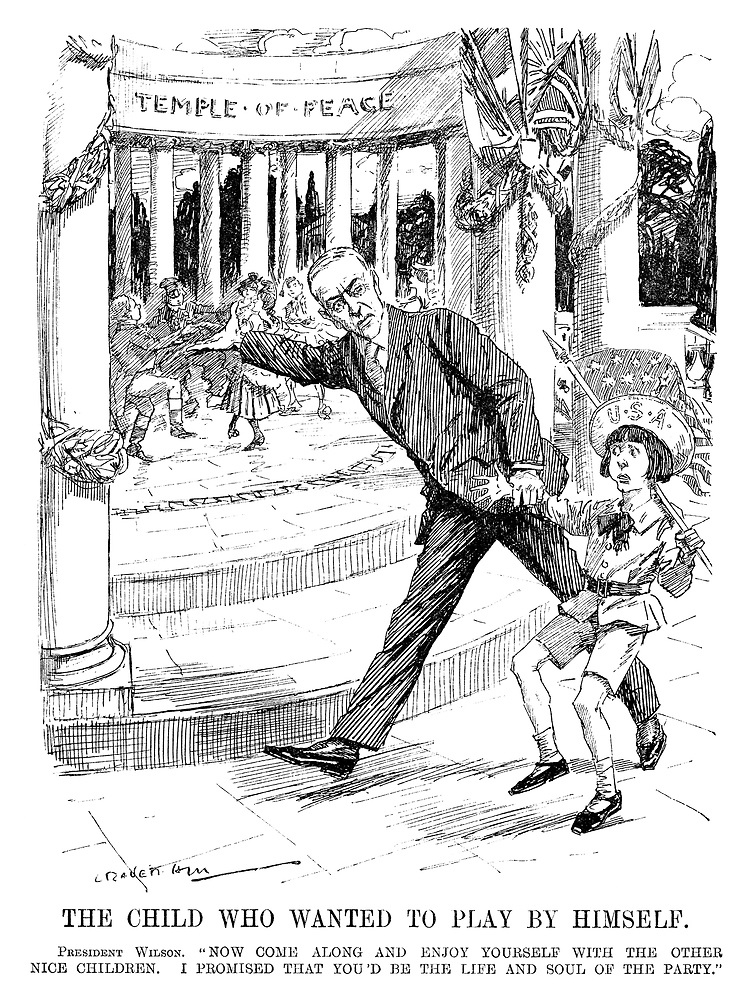
"The Child Who Wanted to Play by Himself," Leonard Raven Hill, 1919
During WWI, Wilson developed his Fourteen Points, which revolved around a “peace without victory” to promote world peace, but the points were not implemented and the war was not stopped.
"The people of the United States could act upon no other principle; and to the vindication of this principle they are ready to devote their lives, their honor, and everything that they possess. The moral climax of this the culminating and final war for human liberty has come..."
- Woodrow Wilson, U.S. President (1918)
"Introducing the Treaty of Versailles/Make Germany Pay," BBC TWO, circa 1919
WWI ended with 40 million casualties. On November 11, 1918, Germany signed an armistice, ending WWI's hostilities. However, to end WWI, formal peace was needed. Allied diplomats gathered in Versailles, for the Paris Peace Conference, to draft a peace treaty, without Germany.
"This is a war to end all wars."
- Woodrow Wilson, US President (1917)